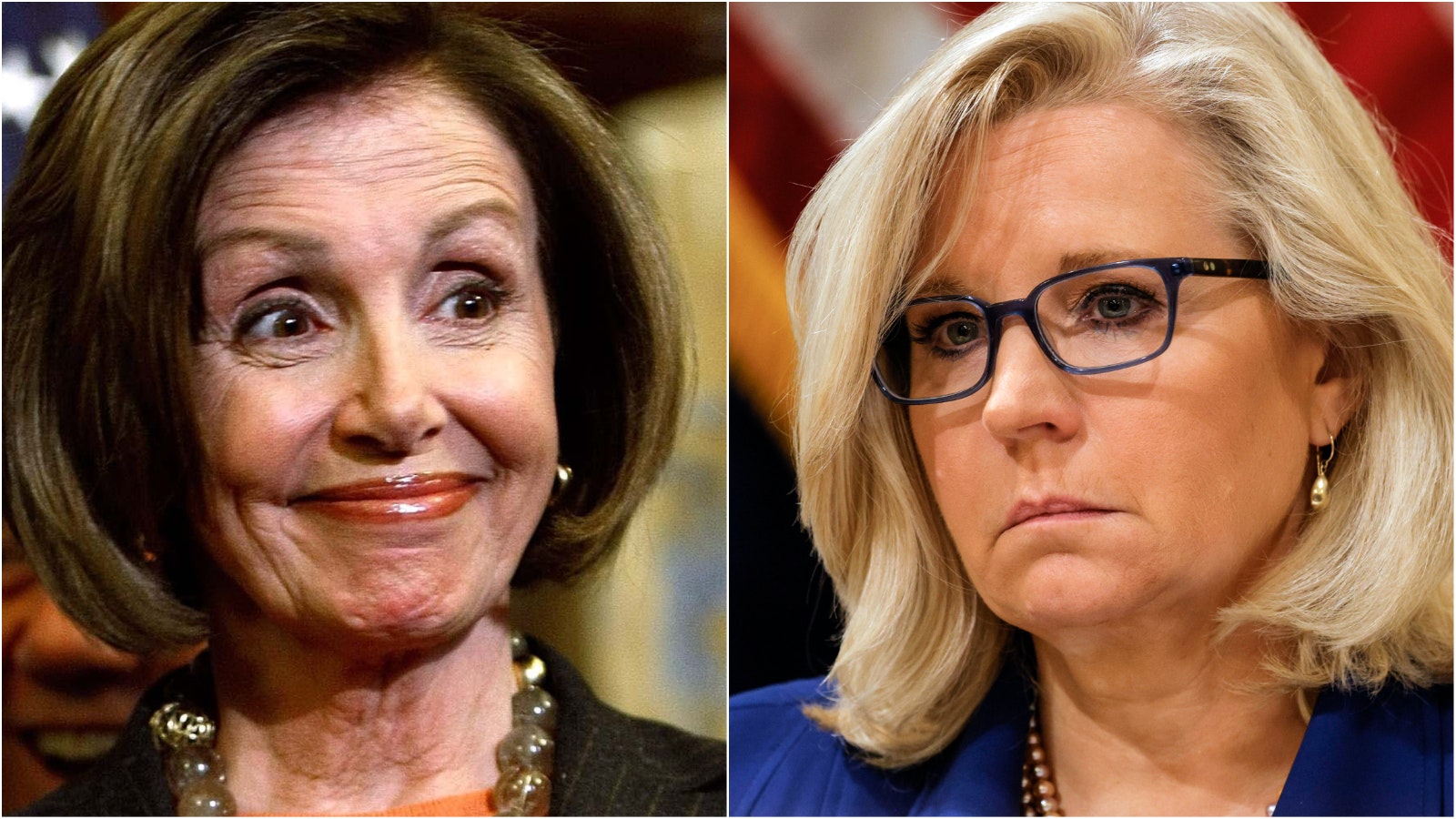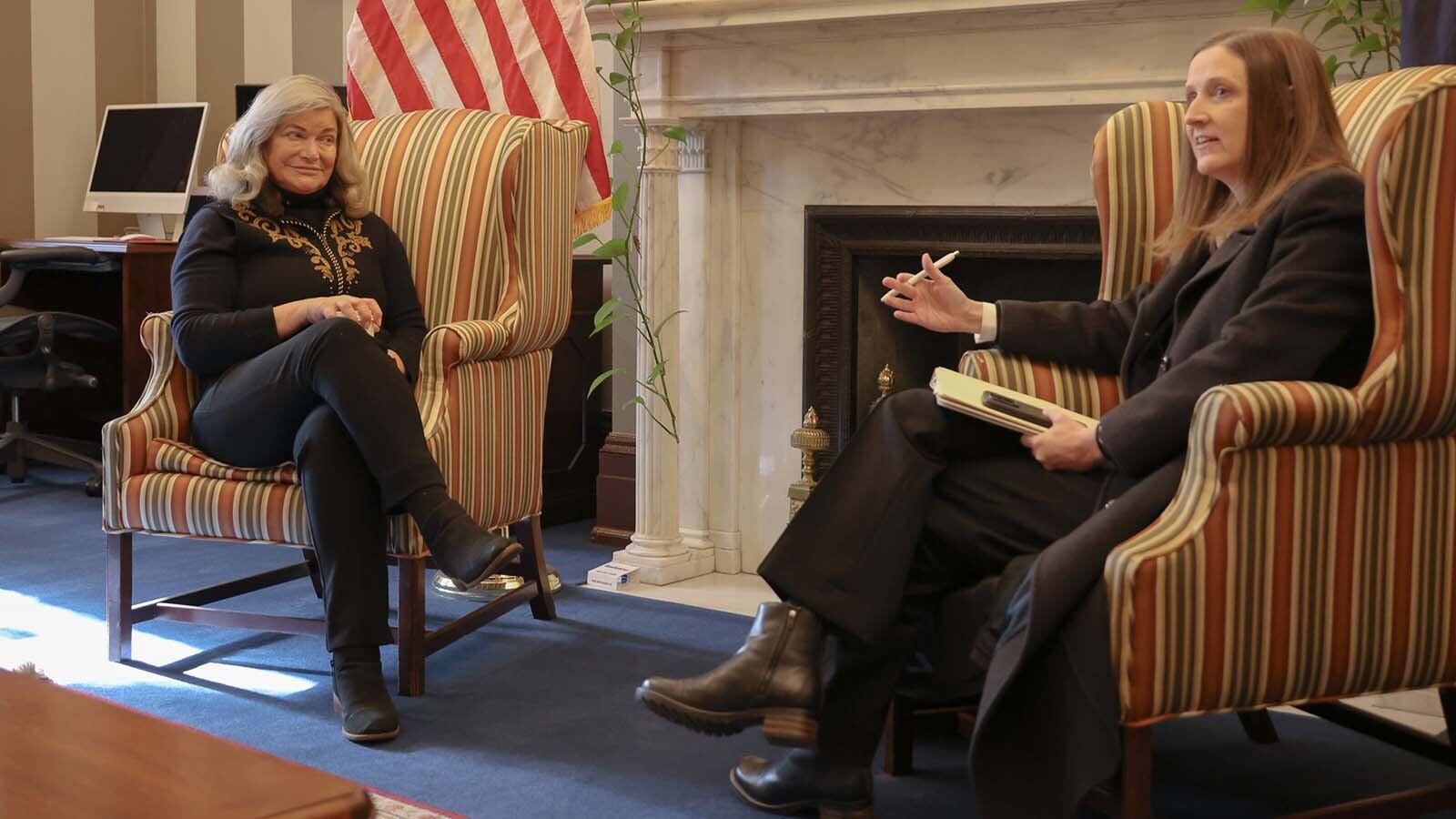The so-called “Inflation Reduction Act” cleared the U.S. House on Friday and is headed to President Joe Biden’s desk.
Every Republican in the U.S. House, including Wyoming’s U.S. Rep. Liz Cheney, voted against the $750 billion spending bill. It includes sweeping tax reforms on the energy industry, a 15% corporate tax for top businesses, and adds about 87,000 new agents to the Internal Revenue Service.
Cheney told Cowboy State Daily she opposed the bill because it will hurt Wyoming and the nation.
“Today’s legislation was not a good bill for Wyoming or our nation,” said Cheney through a text from her spokesman. “The reckless spending and tax hikes will hurt our economy. On top of that, provisions in the legislation attack our fossil fuel industry, which will result in negative consequences for both energy producers and consumers.
“Instead of pushing through legislation supported entirely by one side and opposed by the other, Congress should be working to build bipartisan consensus that provides serious and responsible solutions for the nation.”
Wyoming’s delegates to the U.S. Senate, Republican Senators John Barrasso and Cynthia Lummis, also opposed the bill last weekend.
Money For Bureaus
Besides bolstering the IRS and imposing corporate tax hikes, the act also:
— Requires drug manufacturers to issue rebates to the Centers for Medicare and Medicaid Services for some drugs that cost over $100 per year, and provides funds for CMS to negotiate drug costs;
— Extends features of the Affordable Care Act through 2025;
— Extends and creates tax credits for renewable energy providers and for those investing in such projects;
— Increases permanent tax rates on the coal industry;
— Incentivizes market for “commercial clean vehicles” and “plug-in electric vehicles”
— Gives funding to the U.S. Department of Agriculture for “a variety of programs” including carbon sequestration and forest restoration projects;
— Gives funding to the Department of Housing and Urban Development (HUD) for “climate change issues” and affordable housing;
— Gives funding to the Department of Energy for green energy rebates for homeowners and other projects;
— Gives money to the National Park Service, the Bureau of Land Management and numerous other bureaus for green energy reforms;
— Gives funding to the Department of Homeland Security, the U.S. Postal Service, and the Federal Emergency Management Agency for low-carbon building materials, low-emission delivery vehicles, and other “environmental programs.”
— Gives funding to the Bureau of Indian Affairs for “a tribal electrification program.”
Republican lawmakers have railed against the bill, but a prominent environmental advocate for Wyoming on Thursday told Cowboy State Daily that it’s a heartening push in the departure from fossil fuels.
Connie Wilbert, director of the Wyoming chapter of the Sierra Club, said climate change “affects us right here in Wyoming just like it affects everybody else.”
Wilbert said the nation and Wyoming can’t transition away from fossil fuels fast enough, given that environmental impacts from burning fuels already are impacting the area.
“(We have) a short window of time… left to take enough action to prevent irreversible and devastating climate change,” she said. “And those words scare me.”





